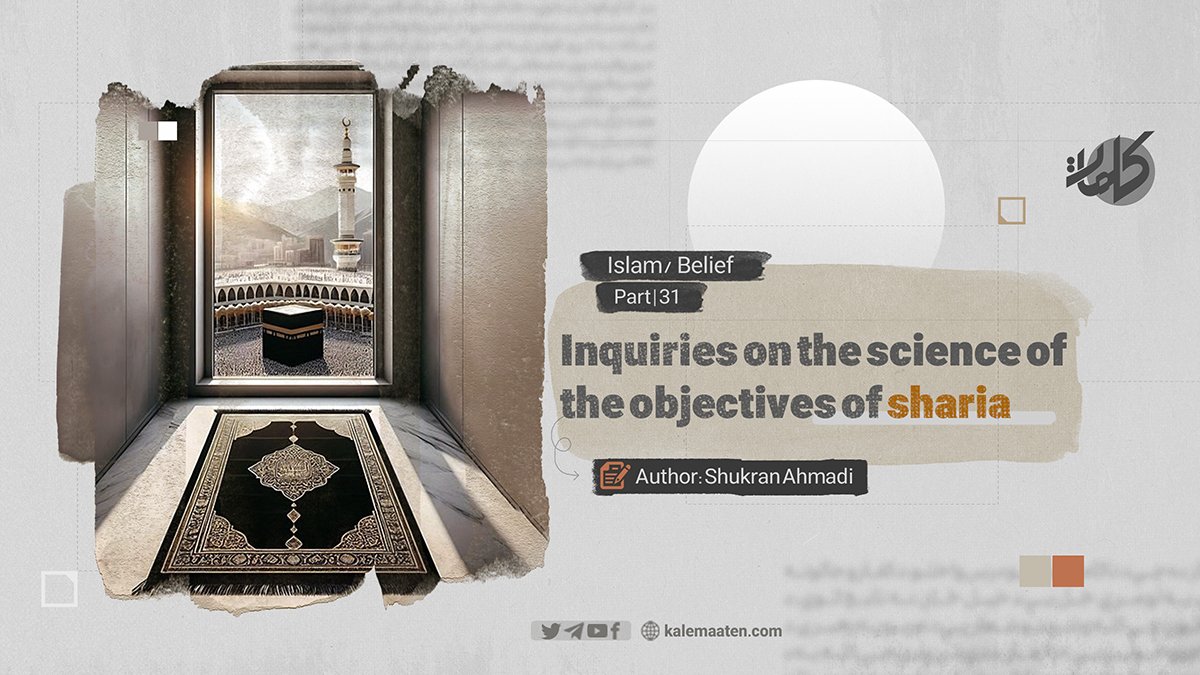Author: Shukran Ahmadi
Inquiries On the Science of the Objectives of Sharia (Part 31)
1- Necessary Objectives
Necessary objectives are: “Those objectives on which Islamic Sharia is based and from which other objectives originate,” which will be considered in detail in the following lines.
A: Definition of Necessary Objectives
Scholars have defined necessary objectives in various ways. Among them, Imam Razi says: “Necessary objectives are interests that include the objectives of preserving religion, preserving the soul, preserving lineage, and preserving wealth.” This definition is considered incomplete because interests or otherworldly objectives are not included in it. Therefore, another group of scholars say more precisely:
“Necessary objectives or interests in Sharia rulings are the objectives, interests, and values on whose fulfillment the continuation of human religious and worldly life depends in some way; Because in the absence and non-realization of those values and purposes, human life is also disrupted and faces complete destruction.”
A number of scholars say: The realization of interests that are necessary is called necessities. That is, the interests of this world and the hereafter cannot be achieved without it. These types of values and purposes, for which many of the rulings of Islamic law have been made legitimate to investigate and secure, are called “the five generalities of human life.
Sheikh Tufi, Ahmad Qarafi, Ibn Sabki, and Shawkani have quoted from some scholars the addition of a sixth category, which is “preserving honor,” and have also defended it. It is appropriate that a sixth category be added to those categories; because the habit of wise people is that they spend their lives and wealth to defend honor and dignity, and whatever is necessary is sacrificed to defend it, that thing is of primary necessity. To protect necessities, Sharia has determined limits. For example, retribution for self-preservation, the punishment for adultery for the preservation of offspring, the punishment for theft for the preservation of property, the punishment for defamation for the preservation of appearance, etc. can be mentioned.
Imam Ghazali (may Allah have mercy on him) says: “It is impossible for religion and the Sharia to exist without considering these interests, and the fact that these objectives are part of the Sharia has been proven by innumerable evidence.”
These definitions are different on the surface, but in reality, they are united and state that the five necessities must be protected. Otherwise, man loses his worldly and otherworldly elements and there is no difference between human life and that of an animal.
B: Types of Necessary objectives
One of the important and valuable topics that has always attracted the attention of scholars and researchers of the idea of objectives is the issue of reviewing the number of the famous five purposes. Most scholars believe that the interests or necessary objectives obtained through the induction of the Sharia are of five types:
-
Preservation of religion.
-
. Preservation of the soul.
-
. Preservation of reason.
-
. Preservation of offspring.
-
. Preservation of property.



